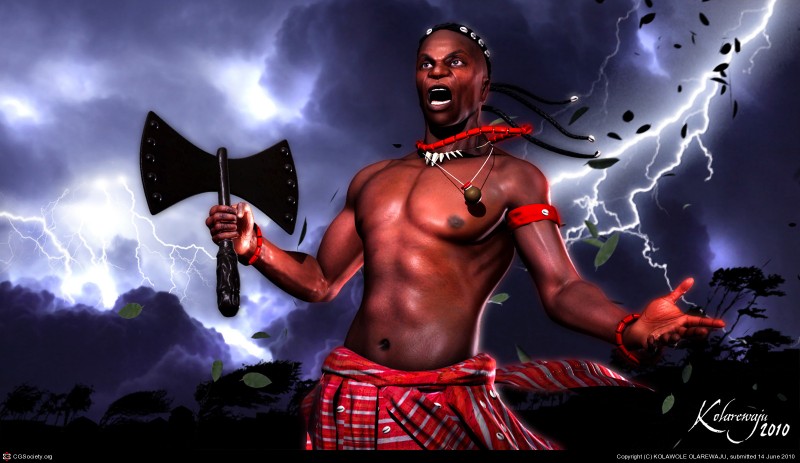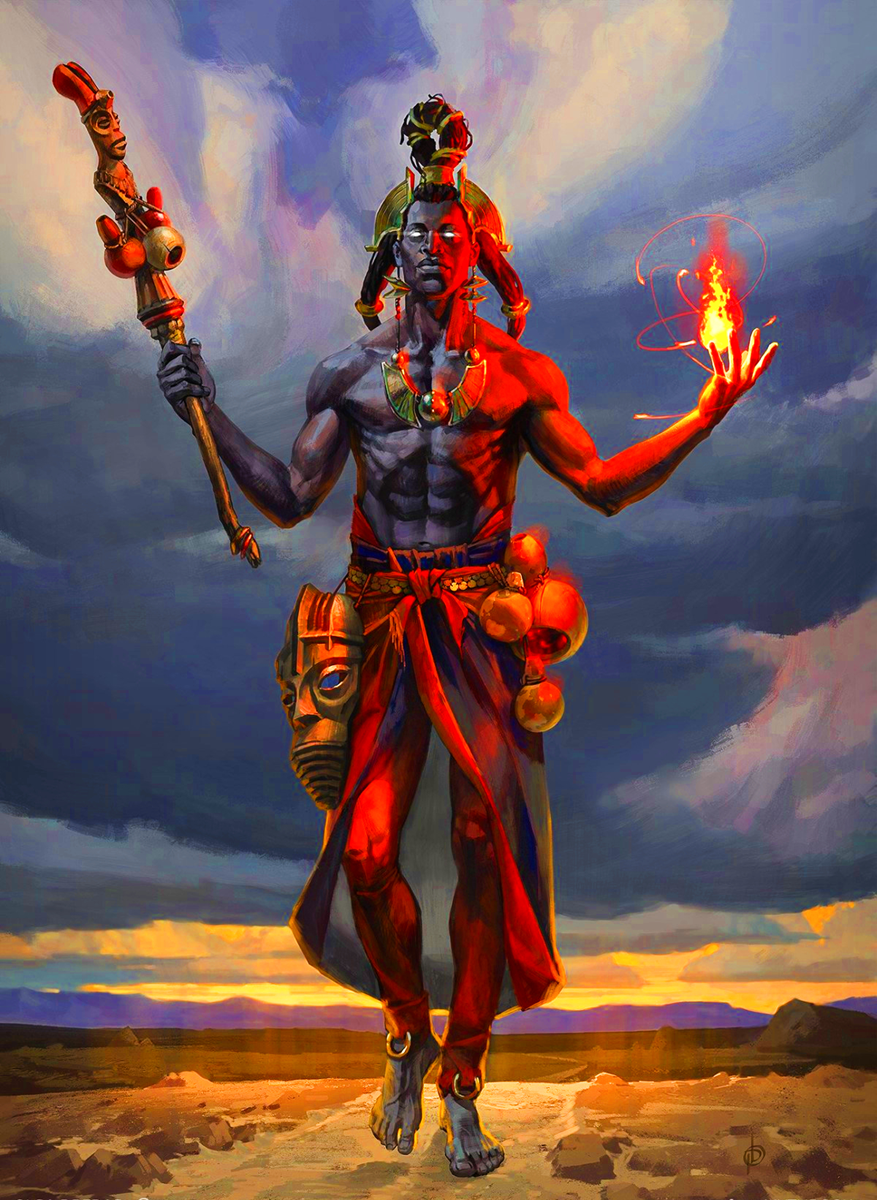Top Lists
Famous Deities In Yoruba Land
In Yoruba mythology, the Orisa are deities who rule over various aspects of the natural and spiritual world. Each god has their own unique personality and domain, and they work together to maintain balance in the world.
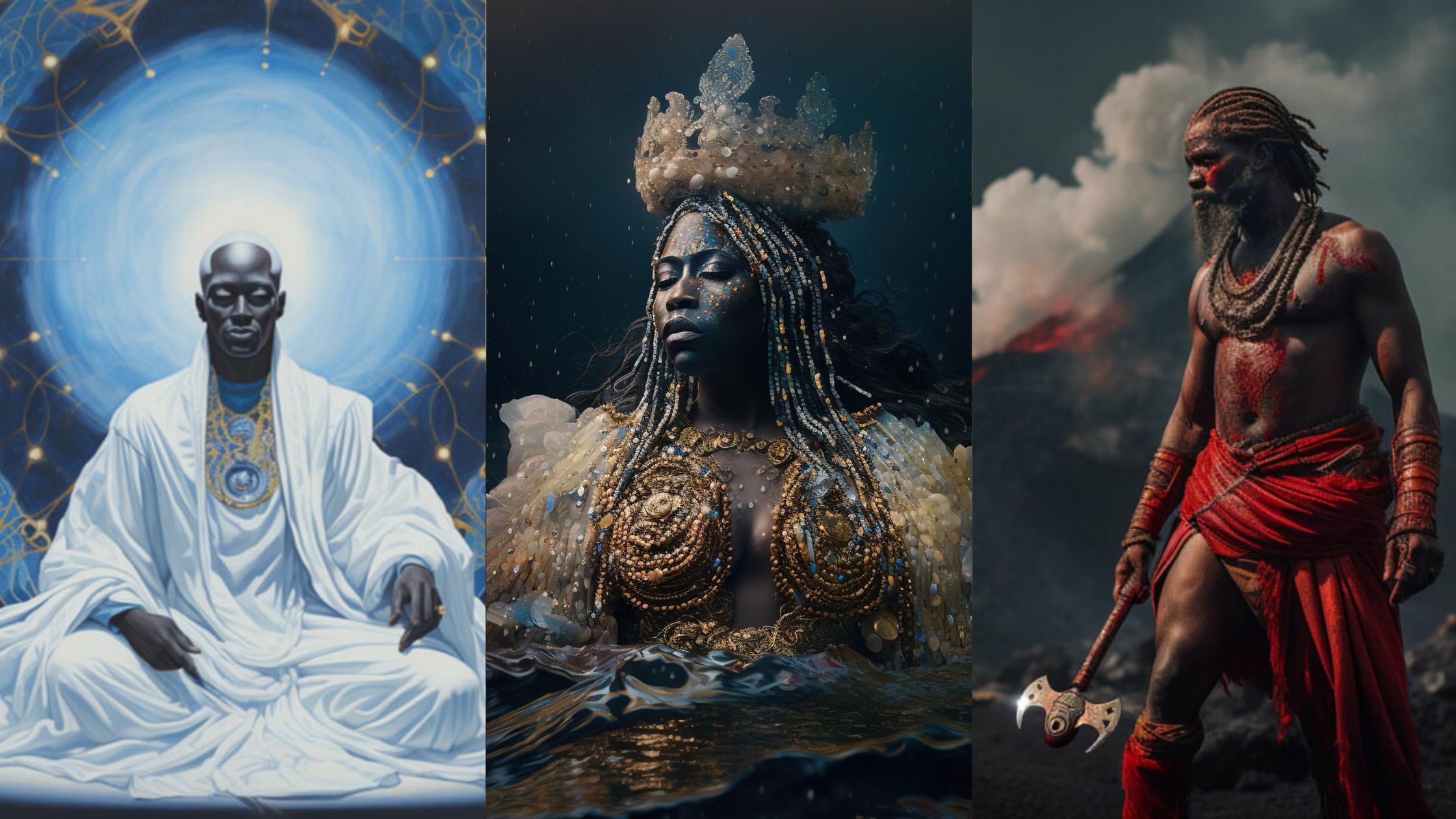
In Yoruba mythology, the Orisa are deities who rule over various aspects of the natural and spiritual world. Each god has their own unique personality and domain, and they work together to maintain balance in the world.
The Orisa are often depicted as human-like beings with superhuman strength and abilities. They are also said to be able to transform into animals or other forms. The Orisa are revered and are thought to be able to help humans in their everyday lives. Many people turn to the Orisa for guidance and protection.
The Yoruba people of West Africa have a rich and varied mythology. Their gods and goddesses cover a wide range of topics, from love and fertility to war and death. Here are some of the most important deities in Yoruba land.
1. Olodumare
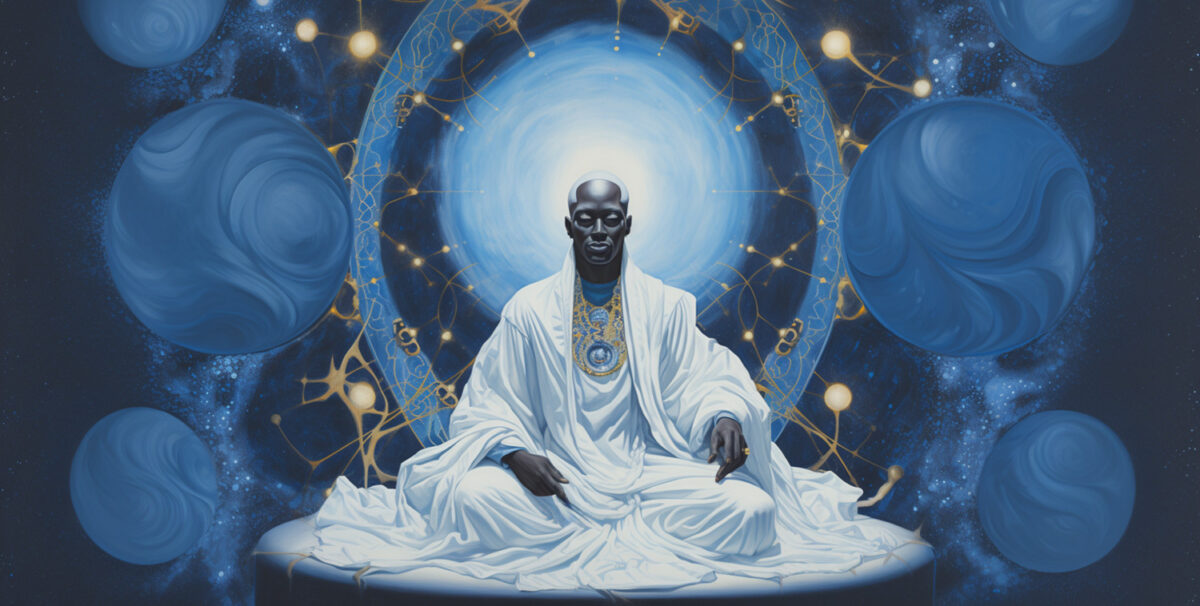
The God of the Source of Creation. In the rich tapestry of Yoruba beliefs, Olodumare, also known as Olorun, holds a special place as the most revered and powerful deity. Think of Olodumare as the Supreme God, kind of like the big boss of the universe. Everything that exists, every tiny insect, every gust of wind, every mountain, and every human, has its origins in Olodumare. He is the starting point of all life and the universe itself.
2. Ṣàngó
The god of the thunders and bolts of lightning. Ṣàngó is viewed as the most powerful and feared of the orisha pantheon. He casts a “thunderstone” to earth, which creates thunder and lightning, to anyone who offends him.
3. Obatala
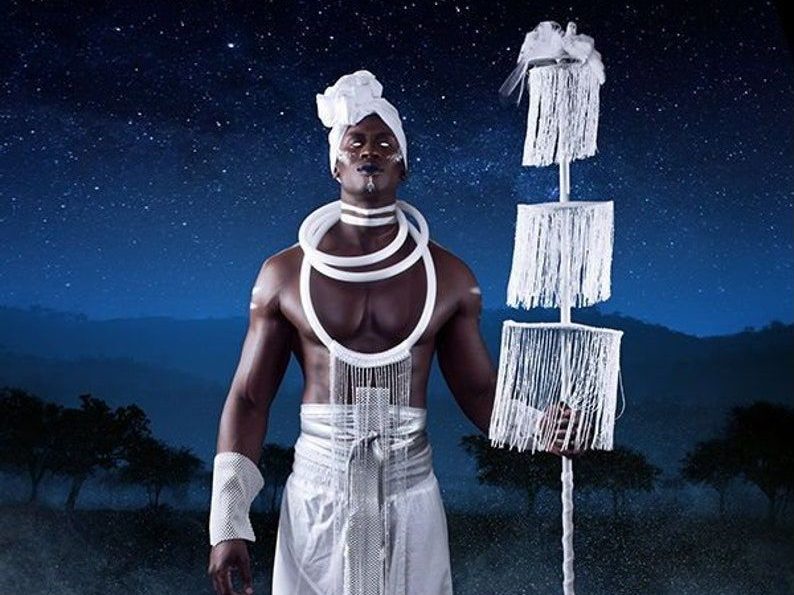
Known as the creator of human bodies; orisha of light, spiritual purity, and moral uprightness. Obatala is the oldest “orisha fun fun” (“white deity”), referring to purity, both physically and symbolically as in the “light” of consciousness.
4. Osun
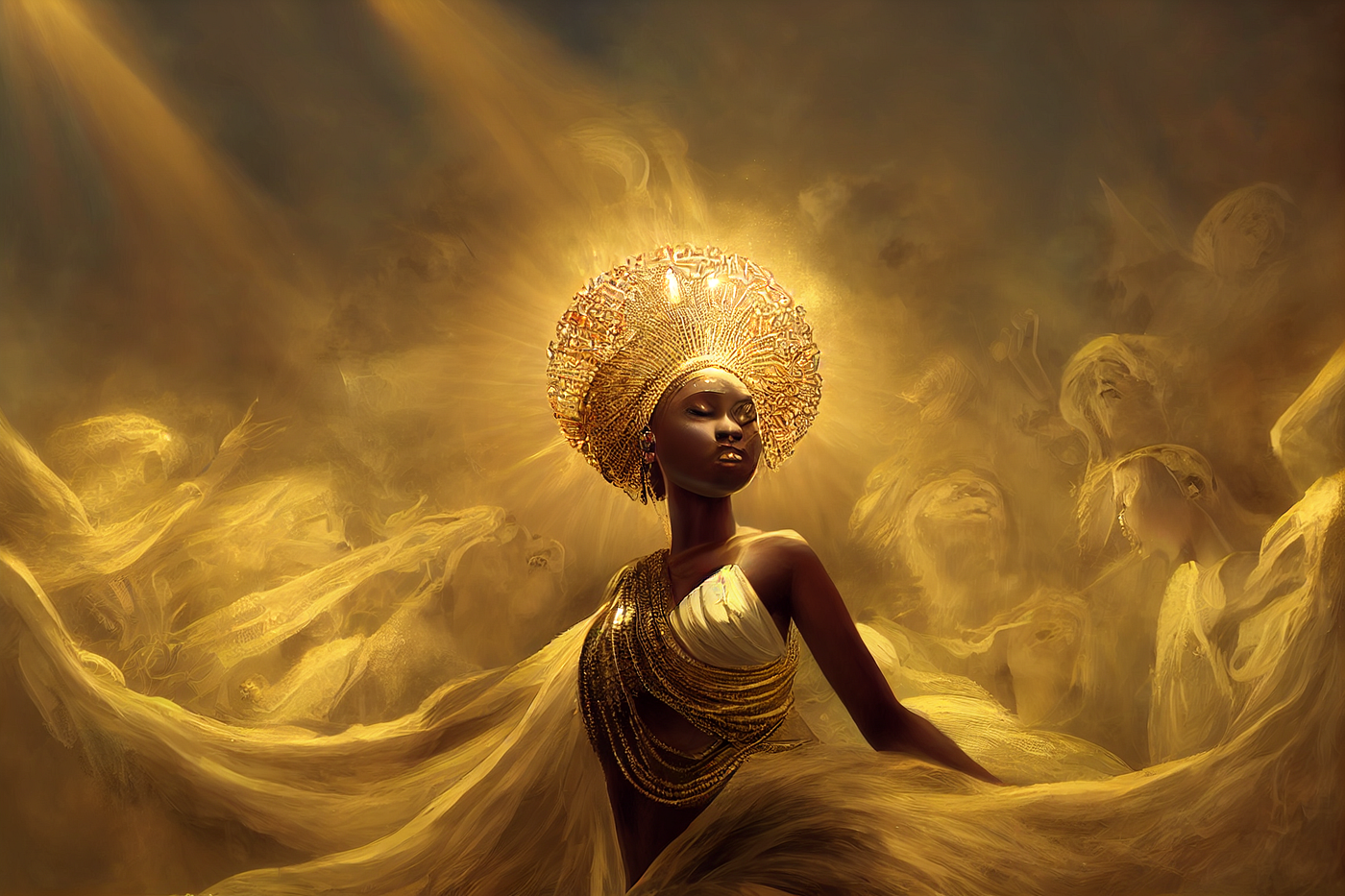
A goddess who presides over love, intimacy, beauty, wealth, diplomacy and the Ọ̀ṣun river. A deity, a spirit, or a goddess that reflects one of the manifestations of the Yorùbá Supreme Being in the Ifá oral tradition and Yoruba-based religions of West Africa. She is one of the most popular and venerated Yoruba goddesses. Osun is an important river deity among the Yorùbá people. She is the goddess of divinity, femininity, fertility, beauty, and love. She is connected to destiny and divination.
5. Èṣù
Èṣù is the orisha of crossroads, duality, beginnings and balance. Esu is an orisa (a god or spirit), so instead of four hundred supernatural powers, the Yoruba often speak of four hundred and one, Esu being the divinity on top of the four hundred. He is regarded as one of the most powerful orisa, capable of changing his form at will.
6. Oya
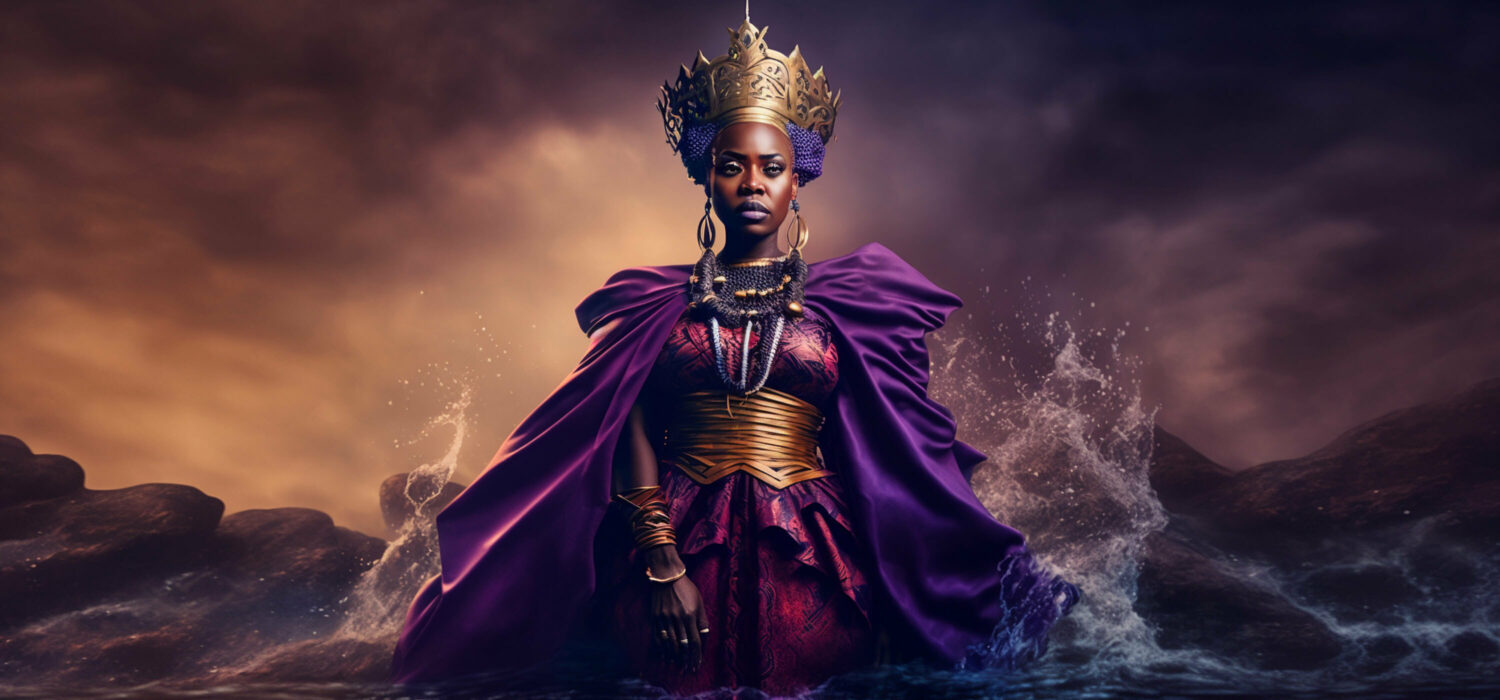
Goddess of the Niger River; associated with wind, lightning, fertility, fire, and magic. Oya is thought to be the offspring of the prehistoric god Obatala and his wife Yemoja. Oya is linked to acts of creation and fertility, perhaps in acknowledgement of the vital role that water plays in the survival of plants, animals, and people. In addition to taking the essential herbs indicated by the herbalist, women who seek to become pregnant could also be instructed to offer food and beverages as sacrifices to Oya on a riverbank.
7. Yemoja
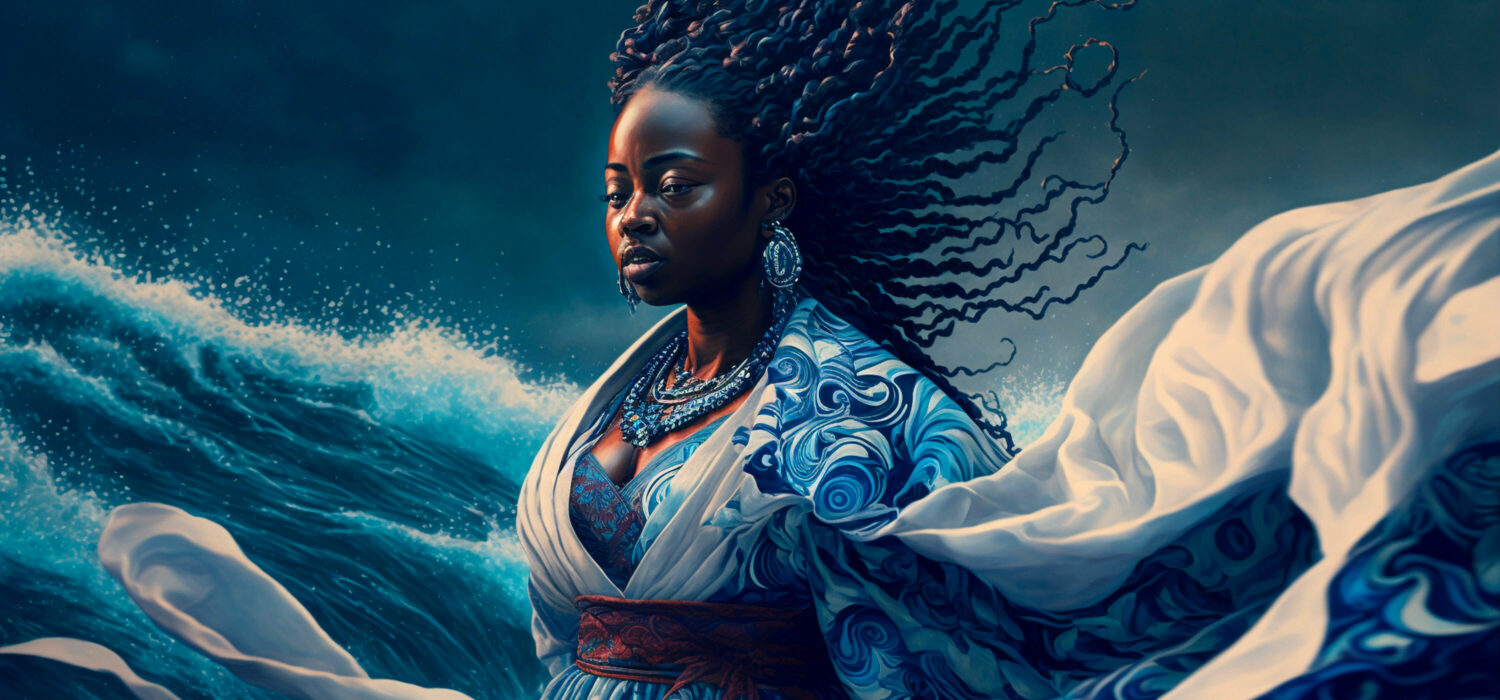
A mother goddess; patron deity of women and of the Ogun river. Yemọja is often depicted as a mermaid and is associated with the moon (in some diaspora communities), water, and feminine mysteries. She is the protector of women. She governs everything pertaining to women; parenting, child safety, love, and healing. According to myth, when her waters broke, it caused a great flood creating rivers and streams and the first mortal humans were created from her womb.
8. Orunmila
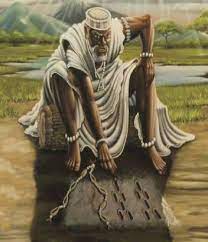
The deity for the spirit of wisdom, divination, destiny, and foresight. Orunmila is another influential Orisha. He is the “god of wisdom, knowledge and divination.” It is said that he was there during the creation of the universe. The Yorubas’ say he once used to take human forms and visit the earth as a priest and teach priests a very highly spiritual religion called Ifa. Orunmila gives an insight into the future to his worshippers as visions to guide their actions.
9. Olokun

Olokun spirit is a deity in the Yoruba land. Olokun is believed to be the parent of Aje, the orisha of great wealth and of the bottom of the ocean. Olokun is revered as the ruler of all bodies of water and for the authority over other water deities. Olokun is highly praised for its ability to give great wealth, health, and prosperity to its followers. Communities in both West Africa and the African diaspora view Olokun variously as female, male, or androgynous.
10. Obaluaye
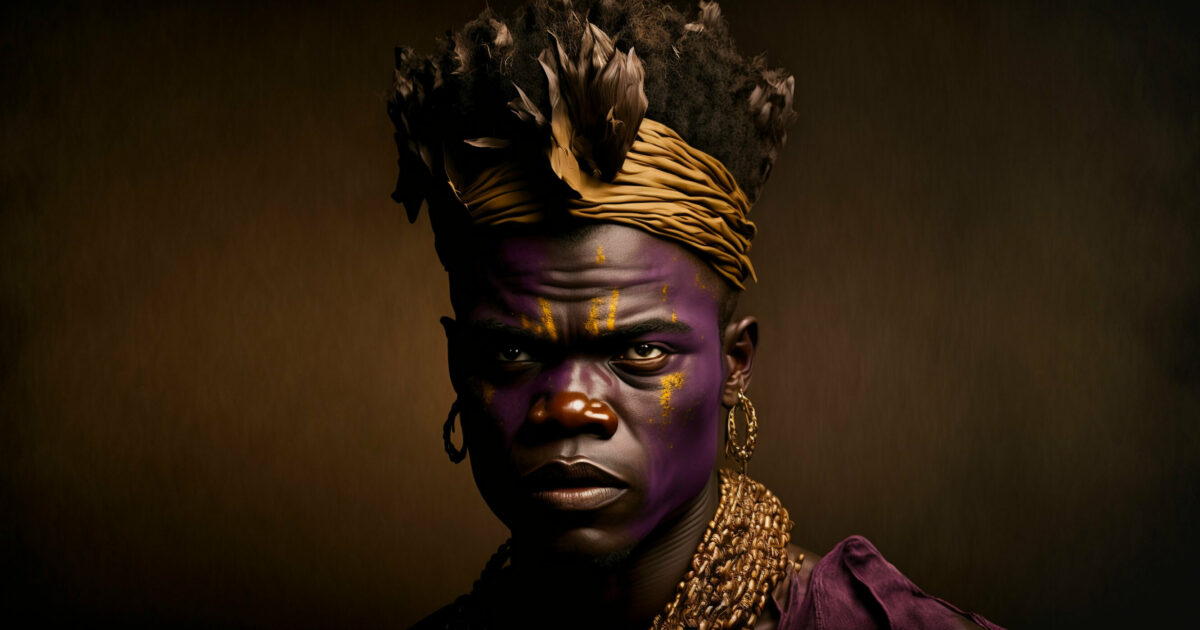
The deity also known as Babalú-Aye, Oluaye, Ṣọpọna, or Obaluaiye, is one of the deities or manifestations of the supreme creator god Olodumare in the Yoruba religion of West Africa. Babalú-Aye is the spirit of the Earth and strongly associated with infectious disease, and healing.
He promotes the cure for illnesses. He is always close to Iku-death (the force responsible for taking life), as he promotes healing for those who are close to death. However, some fear Obaluaye because he is believed to bring disease upon humans, including smallpox, which he is known as Ṣọpọna.
11. Osanyin
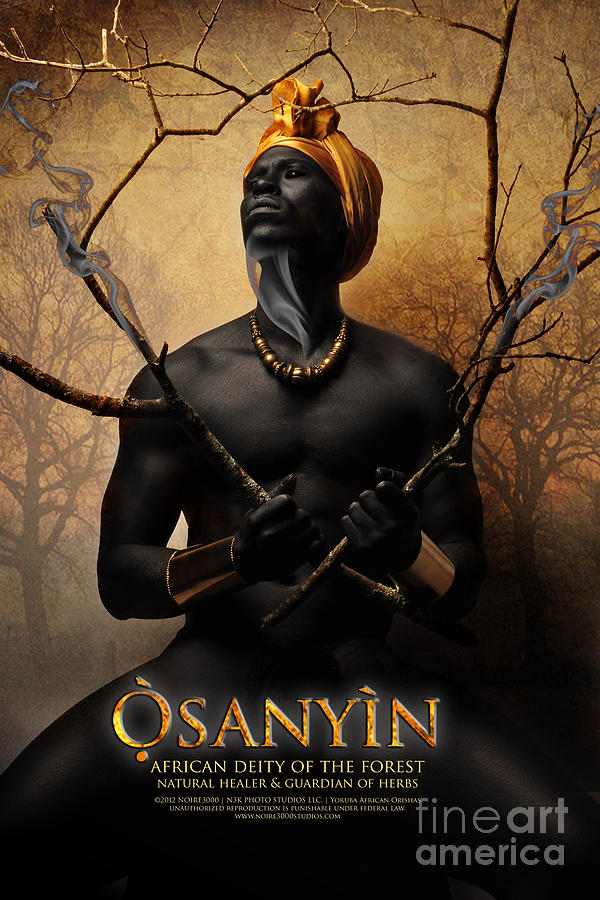
Ọsanyin is the deity that had dominion over all Leaf, Herbs, and Nature also known for healing and magic, and popularity considered an Herbalist and Magician. He is known as a powerful wizard and master of all spells and crafts found in the wild and the untamed areas of nature.
12. Ọbà
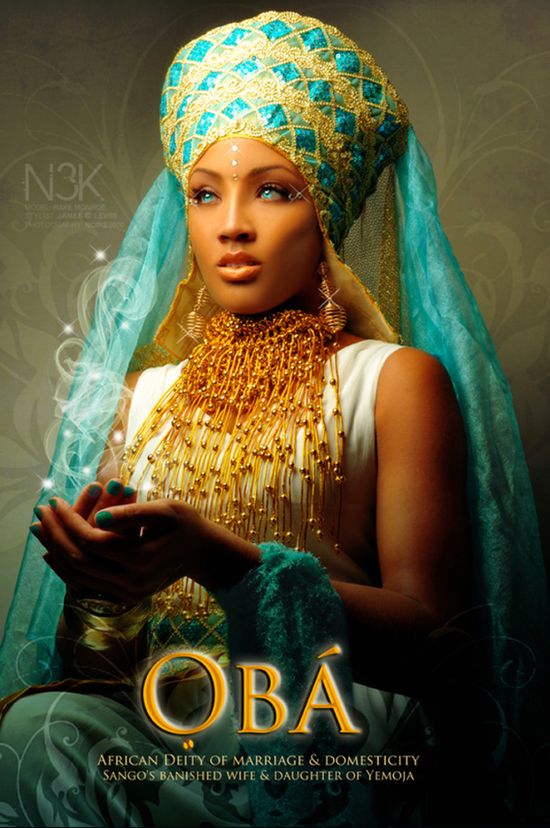
Ọbà is the goddess of the River Oba whose source lies near Igbon where her worship originates. During the wars of the 19th century, her centres of worship moved to the more secure town of Ogbomosho. She is traditionally identified as the senior wife of Sango (the third king of the Oyo Empire and a deity). Oba was tricked by Oya or Osun into cutting off her ear and trying to feed it to Sango.
13. Oduduwa
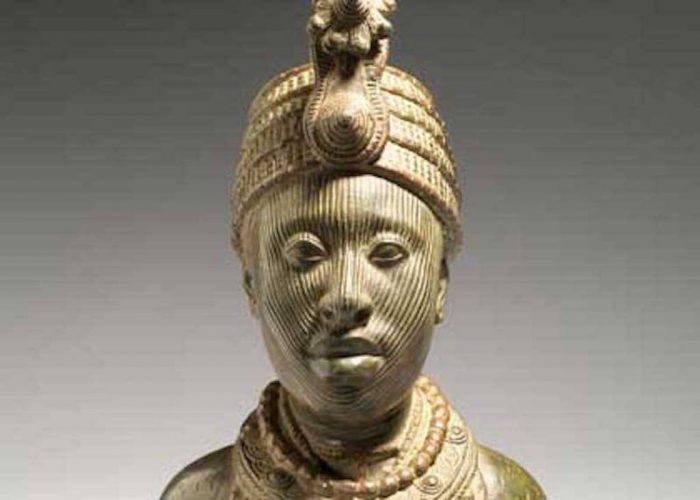
Oduduwa was a Yoruba divine king, a legendary founder of the Ife Empire and a creator deity (orisha) in the Yoruba religion. According to tradition, he was the holder of the title of the Olofin of Ile-Ife, the Yoruba origin. He ruled briefly in Ile-Ife and also served as the progenitor of a number of independent royal dynasties in Yorubaland.
14. Aganju
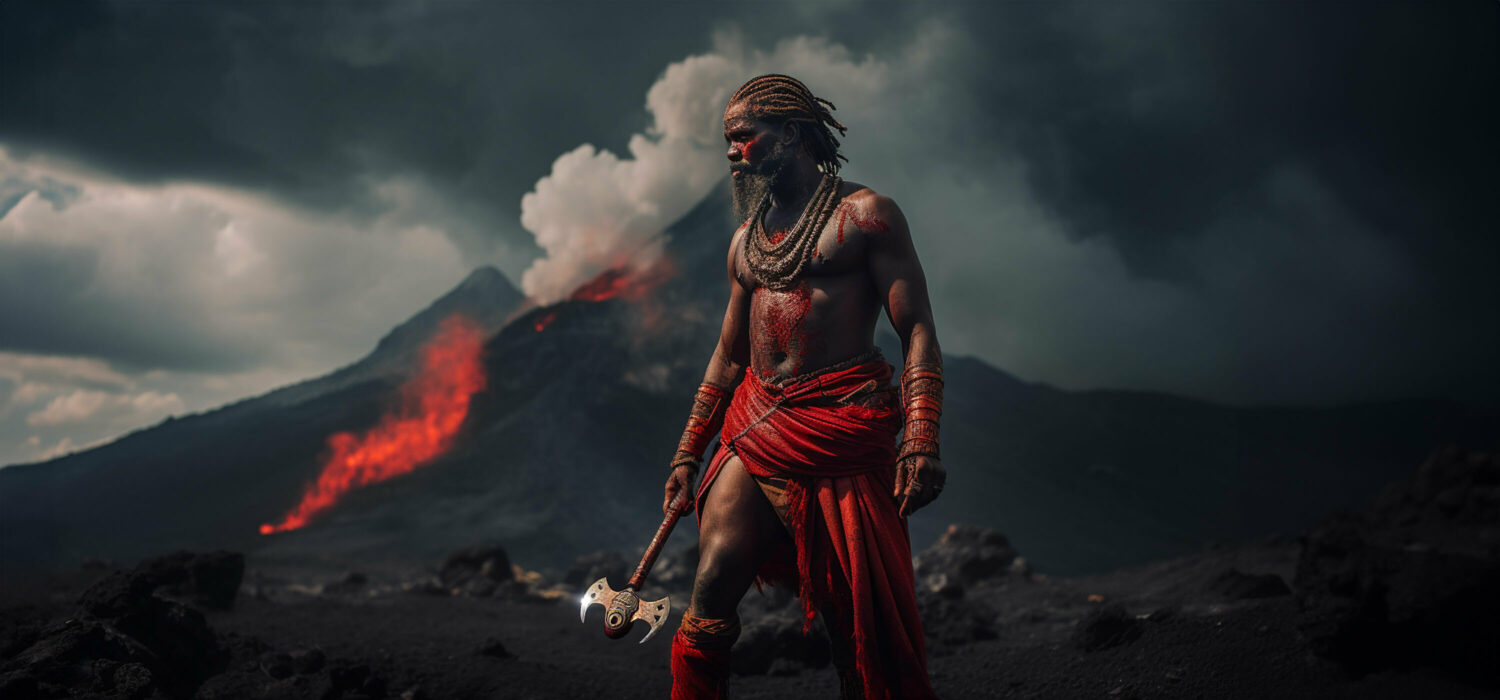
A deity who was a warrior king, he walked with a sword as a staff and is associated with fire. He is not associated with volcanoes in Yorùbáland in West Africa, contrary to what is believed in the Cuban-style practice of orisa.
Aganju is strongly associated with Sango. In some traditions Aganju is described as Shango’s father; in other traditions, he is described as Shango’s brother. Both Shango and Aganju were, at one time, rulers of the Oyo empire who became deified.
15. Erinlẹ
In the Yoruba tradition, Erinlẹ was a great hunter who became a deity. He is usually described as a hunter but sometimes as a herbalist or a farmer. It is said that one day he sank into the earth near Ilobu and became a river. He is known all over Yorùbáland. The cult of Erinlẹ is found in towns throughout the former Oyo Empire. His shrines contain smooth, round stones from the Erinlẹ River. The name may be derived from Erin (elephant) and ilẹ (earth).
16. Ibeji
Ibeji is the name of a deity representing a pair of twins in the Yoruba religion of the Yoruba people (originating from Yorubaland, an area in and around present-day Nigeria). In Yoruba culture and spirituality, twins are believed to be magical and are granted protection by the Orisha Shango. If one twin should die, it represents bad fortune for the parents and the society to which they belong. The parents therefore commission an herbalist to carve a wooden Ibeji to represent the deceased twin, and the parents take care of the figure as if it were a real person. Other than the sex, the appearance of the Ibeji is determined by the sculptor. The parents then dress and decorate the ibeji to represent their own status, using clothing made from cowrie shells, as well as beads, coins and paint.
17. Osumare
Osumare deity is the spirit of the rainbow, and Osumare also means rainbow in the Yoruba language. A divine rainbow serpent associated with creation and procreation.
18. Ọ̀ṣọ́ọ̀sì
Oshosi is the spirit associated with the hunt, forests, animals, and wealth. He is the spirit of meals because it is he who provides food. He is associated with lightness, astuteness, wisdom, and craftiness in the hunt. He is the deity of contemplation, loving the arts and beautiful things. He hunts with a bow and arrow (called an ofá), hunting for good influences and positive energies. Animals sacrificed to Osóssi rituals are goats, cooked pigs, and guinea fowl. The salutation of Ososi in the Yoruba tradition is “Èku, aro”.
19. Aja
Aja (wild wind) is an Orisha, the spirit of the forest, the animals within it and herbal healers. In her forests, she would find plants with medicinal properties and mix the herbs roots and other plant parts together to find cures for the sick. She holds the secrets of botany and can be also looked to for help with trading and economic prosperity. Ajá shared much of her knowledge with humans waiting for someone to come and find her to share it with. This person was usually a shaman in training or someone of the like. Ajá is considered one of the rarest Earth gods because she reveals herself to humans and does not harm or scare them.
20. Ori
Ori, literally meaning “head,” refers to one’s spiritual intuition and destiny. It is the reflective spark of human consciousness embedded into the human essence and therefore is often personified as an Orisha in its own right. It is believed by the Yoruba religion that human beings are able to heal themselves both spiritually and physically by working with the Orishas to achieve a balanced character. When one has a balanced character, one obtains an alignment with one’s Ori or divine self.
It is also believed that Ori is worshipped like Orisha. When things are not going right, Ori should be consulted. And to make things right Ori should be appeased. This is because whatever one becomes or whatever happens in one’s life is destined by Ori.
More Articles on RNN
- 12 Longest Ruling Kings in Nigerian History
- Mind-blowing Facts About Eastern Nigeria
- Top 10 Most Religious Countries in the World 2023
- Top 10 Cultural Festivals In Nigeria

